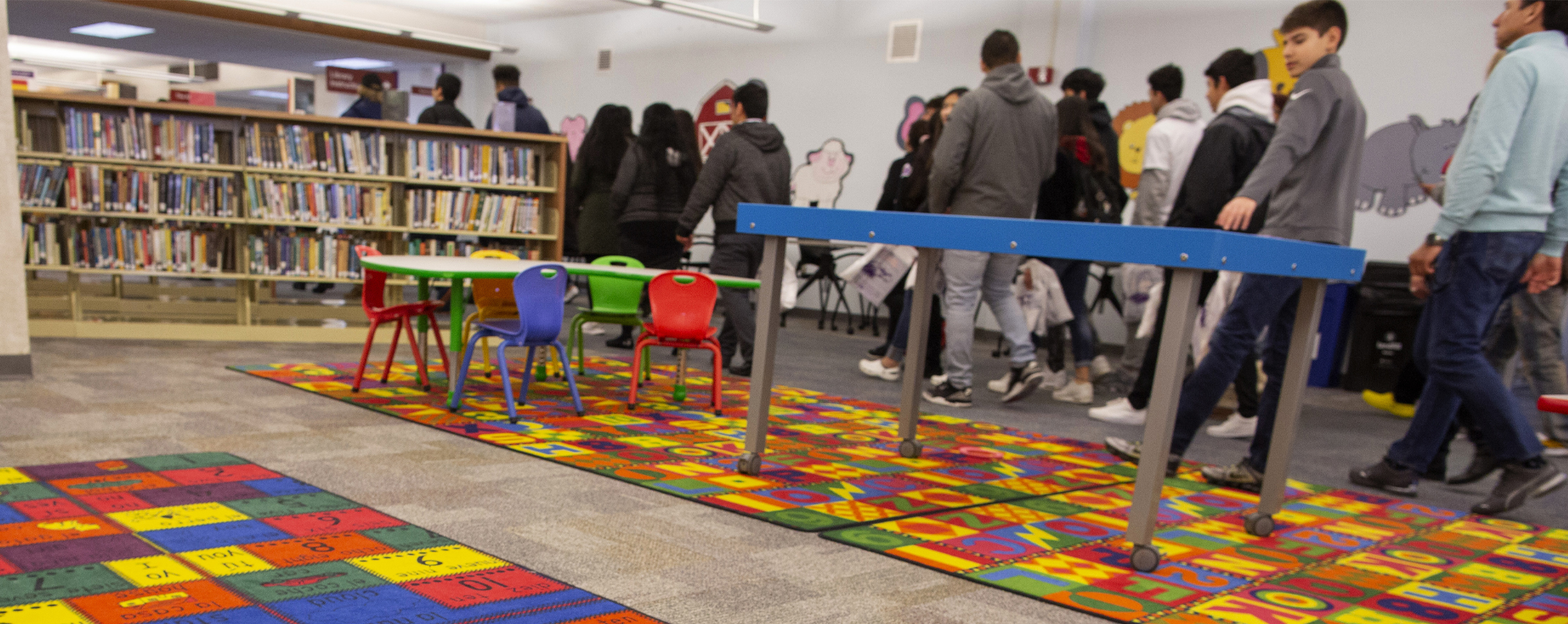LIBRARY MEDIA PROGRAM
UW-Whitewater's Library Media Program prepares students to become school library media specialists or public librarians who serve in their communities and assist patrons in a rapidly changing information landscape. The coursework prepares students to serve their schools and communities as Future Ready Librarians.
The program is designed to be flexible, relevant, and collaborative, with the opportunity for students to complete coursework online and to engage in meaningful fieldwork experiences that will prepare them for a future in librarianship. We offer programs tailored to suit student needs and which take into account prior learning, allowing students to potentially transfer in coursework toward their degree.
UW-Whitewater's library media program also collaborates with UW-Madison and UW-Oshkosh to offer distance courses leading to the 1902 license. See more information on the University of Wisconsin System School Library Education Cooperative (UWSSLEC) »
Winther Hall, Room 6036 | libmedia@uww.edu
Competencies
The coursework in UW-Whitewater’s library programs prepares students to serve their schools and communities as Future Ready Librarians. Throughout their coursework and fieldwork, students will gain skills in the following competencies to prepare them to step into the field of librarianship.
School Library Competencies
- Collection Development, Organization and Access
- Courses covered: Finding and Using Information Organizing Information, Library Administration, Children's Literature, Young Adult Literature
- Technology
- Course covered: Digital Tools
- Administration
- Courses covered: Library Administration, Leadership
- Information Literacy and Teaching
- Course covered: Information Literacy
- Reading and Literacy
- Courses covered: Children's Literature, Young Adult Literature
Public Library Competencies
- Collection development, organization and access Technology
- Library administration, policies, structure and laws, budgeting, financial management, and resource sharing
- Community needs assessment, programming, and marketing
- Other (e.g., literature and reading)

